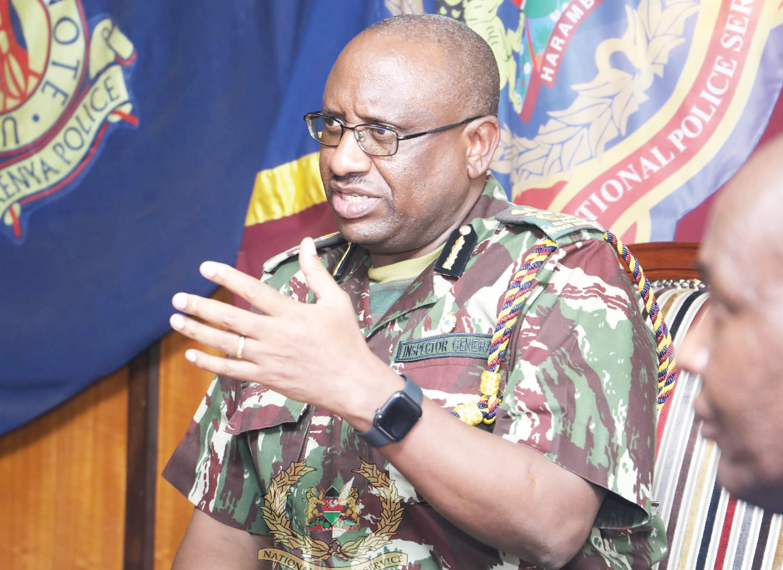IG Koome missteps, lack of accountability fell him
By Zadock.Aangira, July 15, 2024Failure to professionalize the service and make it more accountable, especially for police excesses, are some of the reasons why the former Inspector of Police Japhet Koome’s career came to an abrupt end.
Koome, who tendered his resignation on Friday last week following weeks of Kenyans demanding justice for killings and abductions of anti-government protesters had as early as 2017 been also accused of behind the use of excessive force by his juniors whom he vehemently defended.
On December 16, 2022, just a month after he was sworn in as the fourth Inspector General of Police, Koome lashed out at the right groups, civil society groups and the Independent Policing Oversight Authority (IPOA) terming them busybodies.
Koome, who had served for 33 years, is said to have frustrated some of the investigations into the conduct of some officers who were linked to use of excessive or lethal force.
An independent probe by the IPOA in 2017 had also revealed most of the cases of use of excessive force were due to the instructions and briefs the officers in the region were receiving from Koome, the then Nairobi Area regional police commander.
“IPOA conducted investigations and concluded that he was responsible for the manner in which the Nairobi police handled the protests by the opposition,” a senior official told People Daily.
Oversight bodies
Koome’s disregard for police oversight bodies, especially the IPOA and the Internal Affairs Unit (IAU), was considered his Achilles heels and experts say over-defending his juniors even when they were wrong not only gave them a false sense of immunity but also encouraged them to violate human rights.
During the Azimio-led protests against the cost of living, dozens of Kenyans were killed and several hundreds of others injured. Despite his office getting high-quality incident data that is accurate and pointed to police excesses, the former police boss casually dismissed the probe claiming that opposition politicians had hired bodies from the mortuaries to portray police as killers.
“It is unfortunate that some senior members of the society go to the mortuary hiring dead bodies, calling the media and saying that these were killed by the police. How low can some of our leaders sink?” He posed.
Though any cases of shooting that result in death or serious injury should be investigated by the IPOA, the DCI also has the power to investigate such cases.
Human rights bodies
There were reports from members of the public, and human rights organizations about the killings but the IG never saw any need to order an investigation.
His former colleagues say Koome also got off on the wrong foot and was literally thrust into a fire courtesy of the endless banditry attacks, Azimio protests and the Shakahola Cult massacre.
The failure of police to act, for example, during the apparently well-planned raid at former President Uhuru Kenyatta family’s Northlands farm along the Eastern bypass in Kiambu County badly tainted the image of the former police boss.
As the head of one of the main state security organs, Koome was expected to be loyal to the national executive, despite his office being independent.
He got into unnecessary confrontations with the opposition who later asked the International Criminal Court (ICC) at The Hague to investigate his involvement, whether directly or indirectly, in the police killings. Azimio’s legal representative Paul Mwangi wrote to ICC asking them to open a file on Koome over what the coalition describes as “his express orders to police to kill and maim opposition protestors.”
In April last year, Koome during a press conference at his Kamulu residence said he will not be intimidated by the Azimio’s letter to the ICC.
“I will not be intimidated by the letter. I want to tell members of the National Police Service not to be intimidated by the letter. Serve our country, the Kenyan people and foreign visitors without fear,” he said.
Koome, a career police officer, is aware of various regulations and what the law says about force. However, during his tenure, his public utterances left many Kenyans wondering if he was really keen on making the service professional and accountable.
Whether an officer is directly involved or not, there are cases where commanders can be held responsible for the actions of their juniors.
In the Baby Pendo case, the Director of Public Prosecutions (ODPP) directed that the 12 police commanders who served in Kisumu in 2017 be charged for the death of the child. According to the ODPP, the
